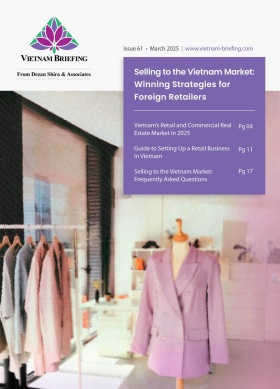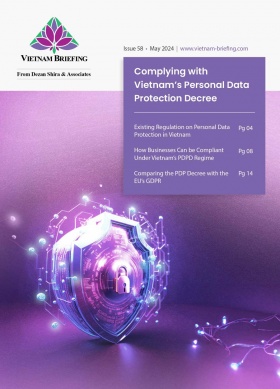Trademark in Vietnam: Tips for Avoiding Refusal and Protecting Your Brand
Vietnam’s intellectual property (IP) legislation aligns with international standards, covering most aspects of IP protection. This article examines the legal basis for trademark refusals in Vietnam under the country’s regulations and provides guidance on how applicants can respond effectively to minimize the risk of rejection.
As per IP Annual Report 2022, in 2022, IPVN received over 140,000 applications, underscoring the growing demand for trademark protection. Vietnam ranked 44th among the 133 economies featured in the Global Innovation Index 2024, reflecting its growing emphasis on IP development and innovation.
Vietnam’s trademark regime is governed by the IP Law (amended in 2022), alongside related regulations, including Circular No. 23/2023/TT-BKHCN (“Circular 23”). The IP Office of Vietnam (IPVN) handles trademark registration, with the procedure comprising formal examination, publication, and substantive examination stages.
However, a considerable number of applications are refused each year based on absolute and relative grounds under Articles 73 and 74 of the IP Law. This article outlines the main reasons for trademark refusal in Vietnam and explores practical remedies to address or prevent them.
Examination process and timeline
Upon submission, a trademark application undergoes a formality examination within one month to check document completeness, classification, and fee compliance. If accepted, the application is published in the Industrial Property Official Gazette within two months. Third parties have five months post-publication to file oppositions.
The next phase is the substantive examination, typically lasting up to nine months, during which IPVN evaluates the trademark’s registrability. If the application fails to meet the criteria, a Notification of Refusal (Office Action) is issued. Applicants then have three months to respond or face a final decision of refusal. Appeals may be filed with the Ministry of Science and Technology or through litigation channels.
Read further: How to register a trademark in Vietnam
Absolute grounds for trademark refusal
Article 73 of Vietnam’s IP Law sets out a comprehensive list of signs that are ineligible for trademark protection. These include signs that violate legal norms or lack the distinctiveness required for registration. Some of the most frequently cited categories include:
- Descriptive or geographical terms: Descriptive terms that merely describe the nature, quantity, purpose, or value of the goods or services, including geographic origin, are unregistrable unless the applicant proves ‘acquired distinctiveness’ through use.
- Business status descriptors: Marks that only indicate the legal status or business sector of a company (for example, “Ltd.” or “Services”) lack the necessary distinctiveness.
- Copyrighted content and cultural values: Trademarks containing protected creative works without authorization or those contrary to public order and traditional Vietnamese values are likewise refused under Article 73 and related provisions.
- National symbols and emblems: Signs identical or confusingly similar to national flags, emblems, or anthems of Vietnam or other countries are automatically disqualified. The same rule applies to signs resembling the names or insignias of Vietnamese state bodies, socio-political organizations, or international organizations, unless express permission is obtained.
- Names and images of notable figures: Trademarks that replicate or closely resemble the real names, aliases, pseudonyms, or portraits of national heroes, political leaders, or famous individuals from Vietnam or abroad will not be accepted without authorization.
- Functional and generic shapes: Marks made up of the original shapes of goods or technical forms necessary for product functionality are also barred. Likewise, basic shapes, numerals, and letters are considered inherently non-distinctive unless widely used and recognized as marks prior to filing.
- Certification and inspection marks: Signs that are identical or similar to certification seals, warranty marks, or inspection logos from international organizations cannot be registered unless the applicant is that organization or has proper authorization.
- Misleading or deceptive signs: Any sign that misleads consumers about the source, function, quality, value, or other essential characteristics of the goods or services is subject to refusal.
In select cases, these refusals may be overcome if the applicant can demonstrate that the mark has acquired distinctiveness through substantial and continuous use in the Vietnamese market prior to the filing date.
Relative grounds for trademark refusal
Refusals based on Article 74 concern conflicts with prior rights. These are issued when the applied-for mark is:
- Identical or confusingly similar to a previously registered or filed mark for the same or similar goods/services;
- Similar to a well-known mark or a widely used unregistered mark with established recognition; and
- Likely to be confused with existing trade names or geographical indications.
Vietnam follows the first-to-file principle (Article 90), meaning the earliest filed mark typically prevails in case of conflict.
Refusal based on bad faith
A separate legal basis for refusal is bad faith registration, governed by Article 34 of Circular 23. This applies when an applicant is aware, or reasonably should be aware, that the applied-for mark is identical or similar to another party’s widely used trademark, whether in Vietnam or internationally.
Such filings are viewed as attempts to exploit existing goodwill, obstruct market access for legitimate businesses, or create leverage for resale. Where bad faith is found, the Intellectual Property Office of Vietnam (IPVN) may suspend the application process or invalidate the registration altogether, pursuant to Article 96.1(a) of the Intellectual Property Law.
Practical measures to overcome refusal
Responding to Office Actions
Applicants receiving a refusal must reply within the designated time, two months for formality issues and three months for substantive ones. Extensions may be granted for valid reasons but only with advance request.
Submitting arguments and evidence
For absolute ground refusals, applicants may submit legal arguments and market evidence, for example, sales data and media coverage) proving the mark’s distinctiveness.
For relative ground refusals, strategies include:
- Arguing dissimilarity with cited marks;
- Demonstrating co-existence in the market; and
- Proving no likelihood of confusion exists.
Filing a Letter of Consent (LOC)
Although Vietnamese law does not expressly recognize Letters of Consent, IPVN may accept them under specific circumstances where the trademarks are not identical and the goods or services do not completely overlap. The LOC must include:
- A clear statement from the cited mark owner consenting to the registration;
- Identification of both trademarks and their owners;
- Reference to the relevant application or registration numbers;
- Confirmation that the cited owner has no objection to coexistence; and
- Notarization and legalization where applicable.
The document must be submitted within the applicant’s response period to the Office Action. If the marks are deemed highly similar and the goods/services overlap completely, IPVN may still reject the application despite the LOC. However, LOCs are usually rejected if the trademarks and goods/services are identical or so similar as to likely cause confusion.
Dividing or amending the application
Applicants may divide their application to exclude refused goods/services, allowing registration of the accepted portion. Alternatively, they can delete the conflicting goods/services, facilitating smoother approval.
To remove citations that block the registration of a new trademark, applicants have two key legal remedies available. First, they can pursue a non-use cancellation under Article 95 of the IP Law. This is appropriate when the cited mark has not been used in commerce for at least five consecutive years in Vietnam. Second, applicants may initiate an invalidation proceeding under Article 96, which applies if the cited mark was granted in violation of protection requirements, such as being non-distinctive or filed in bad faith.
These actions must be carefully supported by documentary evidence, including proof of non-use, market conditions, or legal arguments. The process involves formal filing with the relevant authorities, and in some cases, hearings or additional submissions may be required.
Trademark protection strategies for businesses
To reduce the likelihood of facing trademark refusal, businesses should invest in proactive planning. Conducting a prior trademark search helps detect similar or conflicting registrations in advance. Applicants are also encouraged to use distinctive brand elements, such as invented words or original graphic logos, which are more likely to meet registrability criteria. Avoiding generic or purely descriptive terms will further strengthen an application.
Professional legal advice is essential. Engaging a Vietnam-based IP attorney ensures compliance with local practice, especially during office actions or appeals. Importantly, all foreign applicants are required to appoint a licensed local representative to act on their behalf before the Intellectual Property Office of Vietnam (IPVN).
In brief
Vietnam’s trademark refusal system is built around balancing public interest, fair competition, and rights protection. Absolute and relative grounds for refusal under Articles 73 and 74, along with the increasing enforcement of bad faith provisions under Circular 23, form a comprehensive legal framework. For applicants, the key to overcoming refusal lies in timely, well-structured responses and leveraging all legal tools available—from LOCs to cancellation proceedings.
As Vietnam continues to strengthen its IP infrastructure, businesses entering the market should develop proactive trademark strategies that align with local law. Engaging local counsel and conducting thorough pre-filing assessments can significantly improve registration success.
About Us
Vietnam Briefing is published by Asia Briefing, a subsidiary of Dezan Shira & Associates. We produce material for foreign investors throughout Asia, including ASEAN, China, and India. For editorial matters, contact us here and for a complimentary subscription to our products, please click here. For assistance with investments into Vietnam, please contact us at vietnam@dezshira.com or visit us at www.dezshira.com.
Dezan Shira & Associates assists foreign investors throughout Asia from offices across the world, including in Hanoi, Ho Chi Minh City, and Da Nang. We also maintain offices or have alliance partners assisting foreign investors in China, Hong Kong SAR, Dubai (UAE), Indonesia, Singapore, Philippines, Malaysia, Thailand, Bangladesh, Italy, Germany, the United States, and Australia.
- Previous Article Vietnam-US Trade and Investment Relations: Q1 2025 Update
- Next Article Invoice Compliance in Vietnam: Key Changes under Decree 70
































